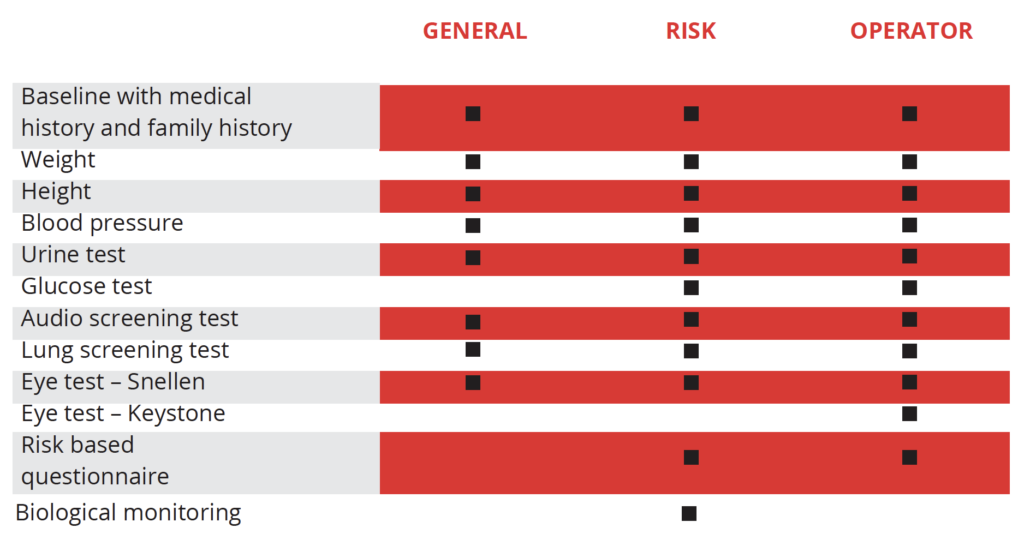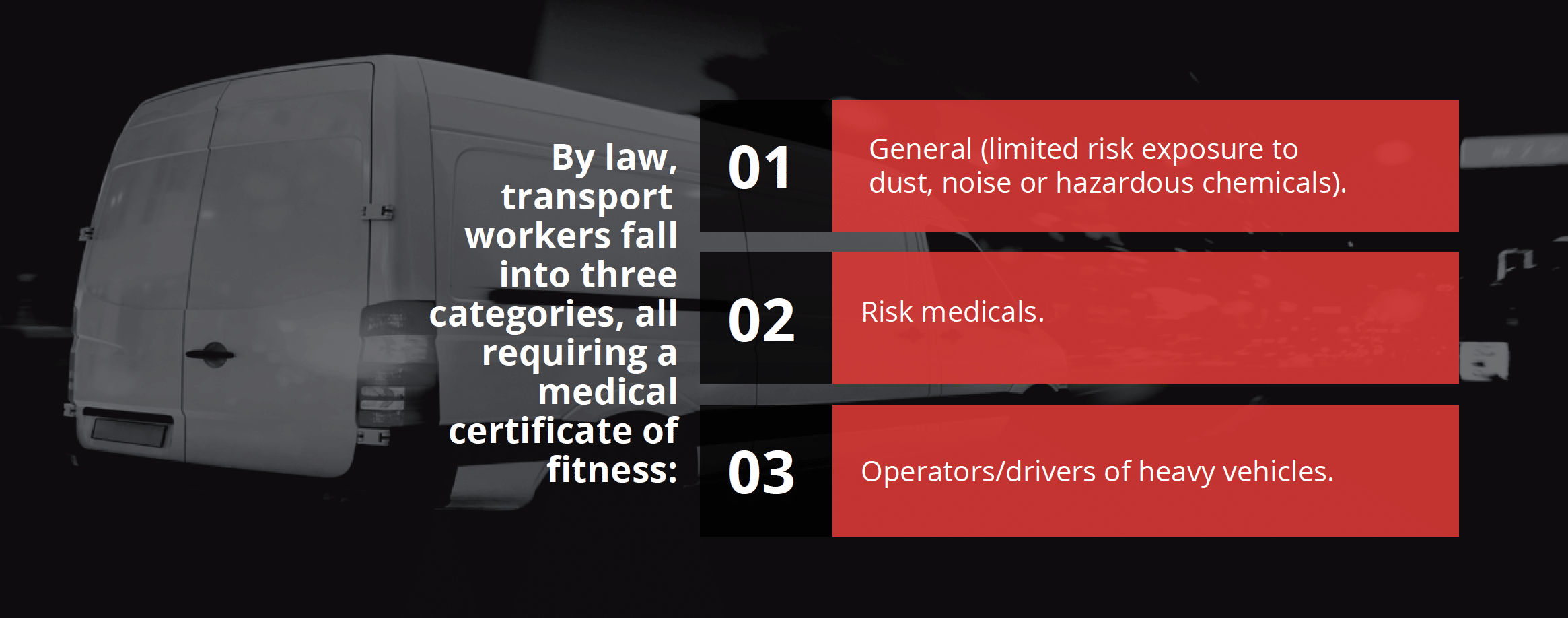Transport, Logistics & Warehousing Medicals
The transport, logistics and warehousing industry has a distinct set of occupational health and safety challenges. There are high physical demands on workers in this sector, and regularly testing their medical fitness is key in any risk prevention strategy that aims to minimise injuries and accidents.
The global economy is highly dependent on the reliable functioning of the transport, logistics and warehousing sector. Employees in this sector tend to work under high time pressure, and this stress is exacerbated by long, irregular hours and physically demanding tasks.
In addition, transport workers often don’t work a 9-5 day, and their atypical working hours can lead to health issues such as long-term fatigue, insomnia and digestive problems. Infectious and exotic diseases are also a concern for long-distance drivers. Transport workers, especially drivers, are typically exposed to:
- Prolonged sitting or standing, repetitive movements and carrying or moving heavy loads, all of which can lead to musculoskeletal disorders, especially back problems.
- Whole-body vibration, which can lead to serious musculoskeletal disorders and also affect vision and co-ordination.
- Noise, which can lead to hearing loss.
- Inhalation of toxic vapours and fumes such as diesel and road, dust which can cause respiratory problems.
- Stress because of crime, road rage and aggressive customers, which can have many negative mental and physical health effects and lead to abseentism.
The transport, logistics and warehousing sector is a high-risk and stressful working environment. The combination of working at high speed to tight deadlines requires high-performing employees who are fit, healthy and focused.
Employers are encouraged to include a general wellness component in their occupational safety and health programmes. Education is also important to combat issues, such as substance abuse and the spread of HIV/Aids, and to encourage healthy habits while driving long distances.
By law, a professional driver in South Africa needs
a valid medical certificate of fitness to operate. This must be obtained prior to employment and applies to many other employees in the transport sector too.
In additional to a full medical examination with eye and audio tests, our occupational health practitioners will screen for conditions such as diabetes, hypertension and epilepsy. We can also do a drug strip test to rule out intoxicating substances.
The following chart shows the test are done for each category:

Training
Services
Well-trained employees are safe employees
Your construction site is only as safe as the employees working for you – and often they are working alone, without your oversight. They need to know what to do when an unexpected event occurs in order to manage the most rapid response possible and minimise risk exposure, injuries and even deaths.
We can help you with your safety training programme either on-site or at our head office in Midrand, where we have classrooms as well as scaffolding to train employees working on heights. This division aims to take the burden of compliance with the Occupational Health and Safety Act away from you so that you can focus on your core functions.
Our training is certified by the Health & Welfare Seta and the Construction Seta. We specialise in:
- Working on heights Scaffold erecting and inspection
- First aid level 1
- Health and safety representative
- Hazard identification and risk assessment
- Basic fire-fighting
Safety Files
We will open and manage your contractor health and safety files for you, ensuring all documentation required in terms of the Occupational Health and Safety Act as well as the Construction Regulations are properly kept and maintained.
Risk Assessments
We will conduct a complete audit to assess your compliance with all aspects of the Occupational Health and Safety Act. This includes a general facility safety inspection of aspects such as storage, lighting, air handling, sanitation, hazardous products, emergency equipment, and so forth. We also develop safety plans as well as fall protection plans. In addition, we offer contractor management to ensure that contractors working on your premises are in compliance with the Occupational Health and Safety Act. This ensures that their activities do not place you at risk of non-compliance.
Incident Investigation
We can investigate all incidents in the workplace and help you to develop and implement action plans to prevent them happening again.

